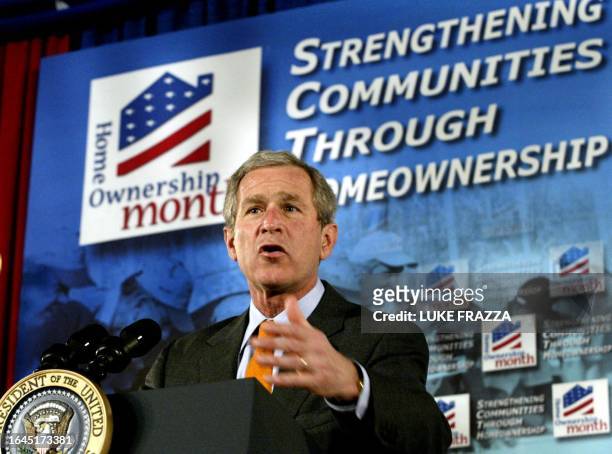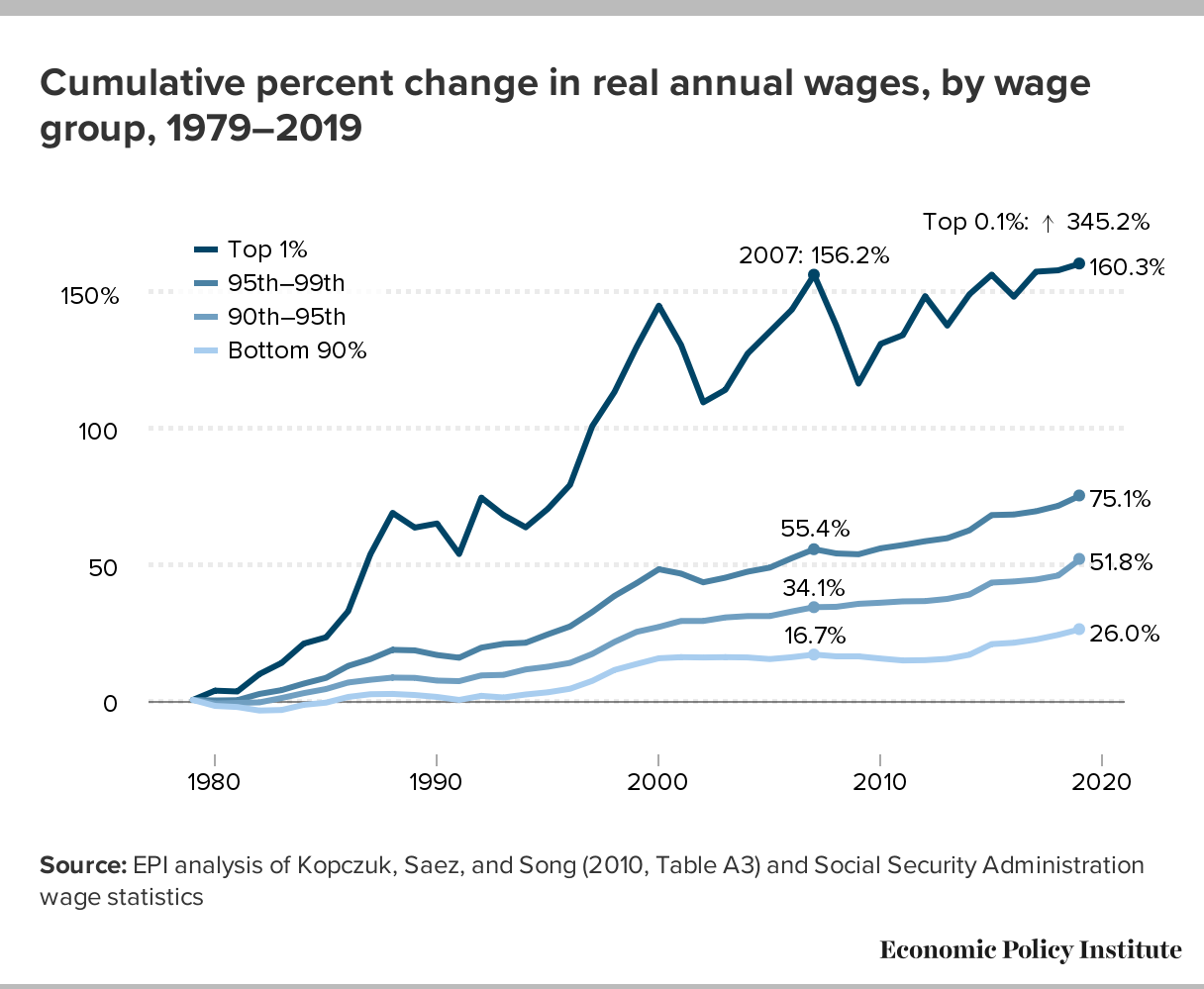Yes GSE's AAA rated securities that mixed in sub-prime mortgages eventually contributed to the problem, because they weren't ACTUALLY AAA risk grade, which is, again, a risk management failure that happened at every level.
April 3, 1998. After announcing billions in fines via CRA Andrew Cuomo is bold in pride that CRA would be abused to force banks to give bad loans.
The Democrats and Obama caused the financial crisis of 08 by supporting Fannie Mae and Freddie Mac
Don't Regulate Fannie Mae or Freddy Mac [Franklin Raines was fined and Fannie Mae fined $400 million]
UPDATED: Obama Sued Citibank Under CRA to Force it to Make Bad Loans
http://www.mediacircus.com/2008/10/obama-sued-citibank-under-cra-to-force-it-to-make-bad-loans/
You want to put some blame on Clinton admin? Sure ok, but when at the same time you give Bush admin a full pass for not only not fixing anything in 7 years leading up to the collapse, but actively pushing for EXPANDING GSE's sub-prime holdings (among all the other Home Ownership and deregulation policies) you just show your hand as just another tribalist politico with no interest for any sort of objectivity.
Here is what President Bush attempted to do and was blocked by Democrats.
For many years the President and his Administration not only warned of the systemic consequences of financial turmoil at a housing government-sponsored enterprise (GSE) but also put forward thoughtful plans to reduce the risk that either Fannie Mae or Freddie Mac would encounter such difficulties. President
Bush publicly called for GSE reform 17 times in 2008 alone before Congress acted. Unfortunately, these warnings went unheeded, as the President’s repeated attempts to reform the supervision of these entities were thwarted by the legislative maneuvering of those who emphatically denied there were problems.
2001
April: The Administration’s FY02 budget declares that the size of Fannie Mae and Freddie Mac is “a potential problem,” because “financial trouble of a large GSE could cause strong repercussions in financial markets, affecting Federally insured entities and economic activity.”
2002
May: The President calls for the disclosure and corporate governance principles contained in his 10-point plan for corporate responsibility to apply to Fannie Mae and Freddie Mac. (OMB Prompt Letter to OFHEO, 5/29/02)
2003
January: Freddie Mac announces it has to restate financial results for the previous three years. [Obama advisor, Franklin Raines was CEO of Freddie Mac when they lied about earnings to increase bonuses]
February: The Office of Federal Housing Enterprise Oversight (OFHEO) releases a report explaining that “although investors perceive an implicit Federal guarantee of [GSE] obligations,” “the government has provided no explicit legal backing for them.” As a consequence, unexpected problems at a GSE could immediately spread into financial sectors beyond the housing market. (“Systemic Risk: Fannie Mae, Freddie Mac and the Role of OFHEO,” OFHEO Report, 2/4/03).
September: Fannie Mae discloses SEC investigation and acknowledges OFHEO’s review found earnings manipulations.
September: Treasury Secretary John Snow testifies before the House Financial Services Committee to recommend that Congress enact “legislation to create a new Federal agency to regulate and supervise the financial activities of our housing-related government sponsored enterprises” and set prudent and appropriate minimum capital adequacy requirements.
October: Fannie Mae discloses $1.2 billion accounting error.
November: Council of the Economic Advisers (CEA) Chairman Greg Mankiw explains that any “legislation to reform GSE regulation should empower the new regulator with sufficient strength and credibility to reduce systemic risk.” To reduce the potential for systemic instability, the regulator would have “broad authority to set both risk-based and minimum capital standards” and “receivership powers necessary to wind down the affairs of a troubled GSE.” (N. Gregory Mankiw, Remarks At The Conference Of State Bank Supervisors State Banking Summit And Leadership, 11/6/03).
2004
February: The President’s FY05 Budget again highlights the risk posed by the explosive growth of the GSEs and their low levels of required capital, and called for creation of a new, world-class regulator: “The Administration has determined that the safety and soundness regulators of the housing GSEs lack sufficient power and stature to meet their responsibilities, and therefore…should be replaced with a new strengthened regulator.” (2005 Budget Analytic Perspectives, pg. 83)
February: CEA Chairman Mankiw cautions Congress to “not take [the financial market's] strength for granted.” Again, the call from the Administration was to reduce this risk by “ensuring that the housing GSEs are overseen by an effective regulator.” (N. Gregory Mankiw, Op-Ed, “Keeping Fannie And Freddie’s House In Order,”
Financial Times, 2/24/04).
June: Deputy Secretary of Treasury Samuel Bodman spotlights the risk posed by the GSEs and called for reform, saying “We do not have a world-class system of supervision of the housing government sponsored enterprises (GSEs), even though the importance of the housing financial system that the GSEs serve demands the best in supervision to ensure the long-term vitality of that system. Therefore, the Administration has called for a new, first class, regulatory supervisor for the three housing GSEs: Fannie Mae, Freddie Mac, and the Federal Home Loan Banking System.” (Samuel Bodman, House Financial Services Subcommittee on Oversight and Investigations Testimony, 6/16/04).
2005
April: Treasury Secretary John Snow repeats his call for GSE reform, saying “Events that have transpired since I testified before this Committee in 2003 reinforce concerns over the systemic risks posed by the GSEs and further highlight the need for real GSE reform to ensure that our housing finance system remains a strong and vibrant source of funding for expanding homeownership opportunities in America… Half-measures will only exacerbate the risks to our financial system.” (Secretary John W. Snow, “Testimony Before The U.S. House Financial Services Committee,” 4/13/05).
2007
July: Two Bear Stearns hedge funds invested in mortgage securities collapse.
August: President Bush emphatically calls on Congress to pass a reform package for Fannie Mae and Freddie Mac, saying “first things first when it comes to those two institutions. Congress needs to get them reformed, get them streamlined, get them focused, and then I will consider other options.” (President George W. Bush, Press Conference, The White House, 8/9/07).
September: RealtyTrac announces foreclosure filings up 243,000 in August – up 115 percent from the year before.
September: Single-family existing home sales decreases 7.5 percent from the previous month – the lowest level in nine years. Median sale price of existing homes fell six percent from the year before.
December: President Bush again warns Congress of the need to pass legislation reforming GSEs, saying “These institutions provide liquidity in the mortgage market that benefits millions of homeowners, and it is vital they operate safely and operate soundly. So I’ve called on Congress to pass legislation that strengthens independent regulation of the GSEs – and ensures they focus on their important housing mission. The GSE reform bill passed by the House earlier this year is a good start. But the Senate has not acted. And the United States Senate needs to pass this legislation soon.” (President George W. Bush, Discusses Housing, The White House, 12/6/07).
2008
January: Bank of America announces it will buy Countrywide.
January: Citigroup announces mortgage portfolio lost $18.1 billion in value.
February: Assistant Secretary David Nason reiterates the urgency of reforms, says “A new regulatory structure for the housing GSEs is essential if these entities are to continue to perform their public mission successfully.” (David Nason, Testimony On Reforming GSE Regulation, Senate Committee On Banking, Housing And Urban Affairs, 2/7/08).
March: Bear Stearns announces it will sell itself to JPMorgan Chase.
March: President Bush calls on Congress to take action and “move forward with reforms on Fannie Mae and Freddie Mac. They need to continue to modernize the FHA, as well as allow State housing agencies to issue tax-free bonds to homeowners to refinance their mortgages.” (President George W. Bush, Remarks To The Economic Club Of New York, New York, NY, 3/14/08).
April: President Bush urges Congress to pass the much needed legislation and “modernize Fannie Mae and Freddie Mac. [There are] constructive things Congress can do that will encourage the housing market to correct quickly by … helping people stay in their homes.” (President George W. Bush, Meeting With Cabinet, the White House, 4/14/08).
May: President Bush issues several pleas to Congress to pass legislation reforming Fannie Mae and Freddie Mac before the situation deteriorates further.
· “Americans are concerned about making their mortgage payments and keeping their homes. Yet Congress has failed to pass legislation I have repeatedly requested to modernize the Federal Housing Administration that will help more families stay in their homes, reform Fannie Mae and Freddie Mac to ensure they focus on their housing mission, and allow State housing agencies to issue tax-free bonds to refinance sub-prime loans.” (President George W. Bush, Radio Address, 5/3/08).
· “[T]he government ought to be helping creditworthy people stay in their homes. And one way we can do that – and Congress is making progress on this – is the reform of Fannie Mae and Freddie Mac. That reform will come with a strong, independent regulator.” (President George W. Bush, Meeting With The Secretary Of The Treasury, the White House, 5/19/08).
· “Congress needs to pass legislation to modernize the Federal Housing Administration, reform Fannie Mae and Freddie Mac to ensure they focus on their housing mission, and allow State housing agencies to issue tax-free bonds to refinance subprime loans.” (President George W. Bush, Radio Address, 5/31/08).
June: As foreclosure rates continued to rise in the first quarter, the President once again asks Congress to take the necessary measures to address this challenge, saying “we need to pass legislation to reform Fannie Mae and Freddie Mac.” (President George W. Bush, Remarks At Swearing In Ceremony For Secretary Of Housing And Urban Development, Washington, D.C., 6/6/08).
July: Congress heeds the President’s call for action and passes reform of Fannie Mae and Freddie Mac as it becomes clear that the institutions are failing.
Just the Facts: The Administration’s Unheeded Warnings About the Systemic Risk Posed by the GSEs
cafehayek.com





